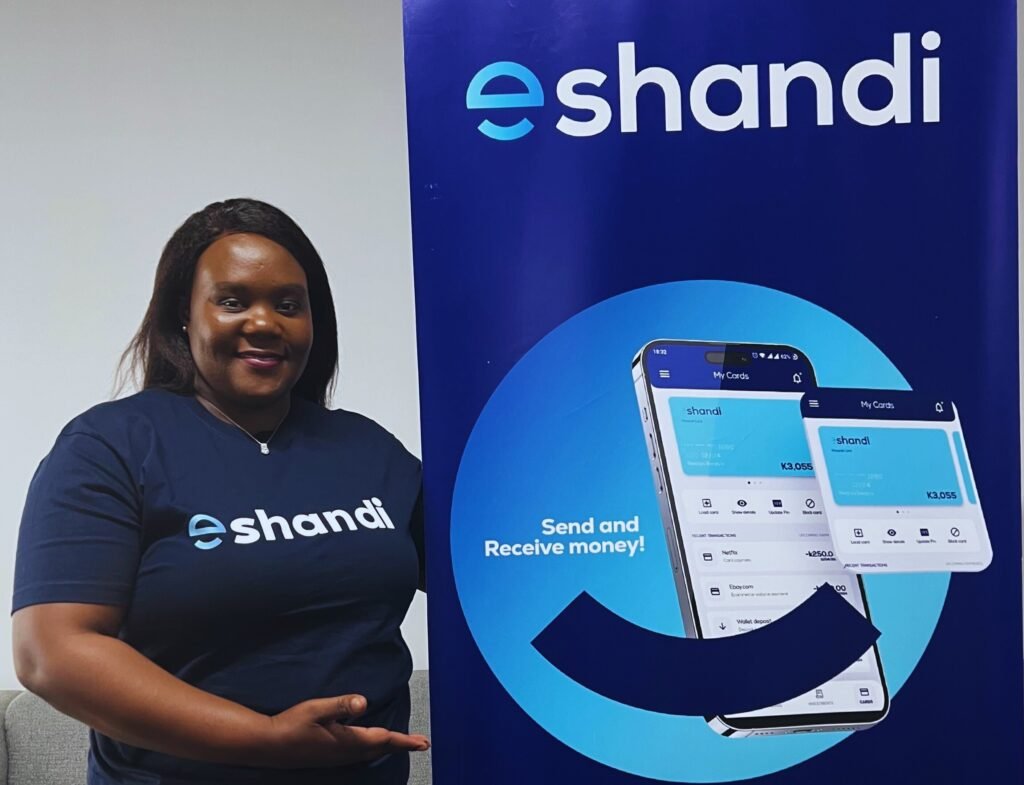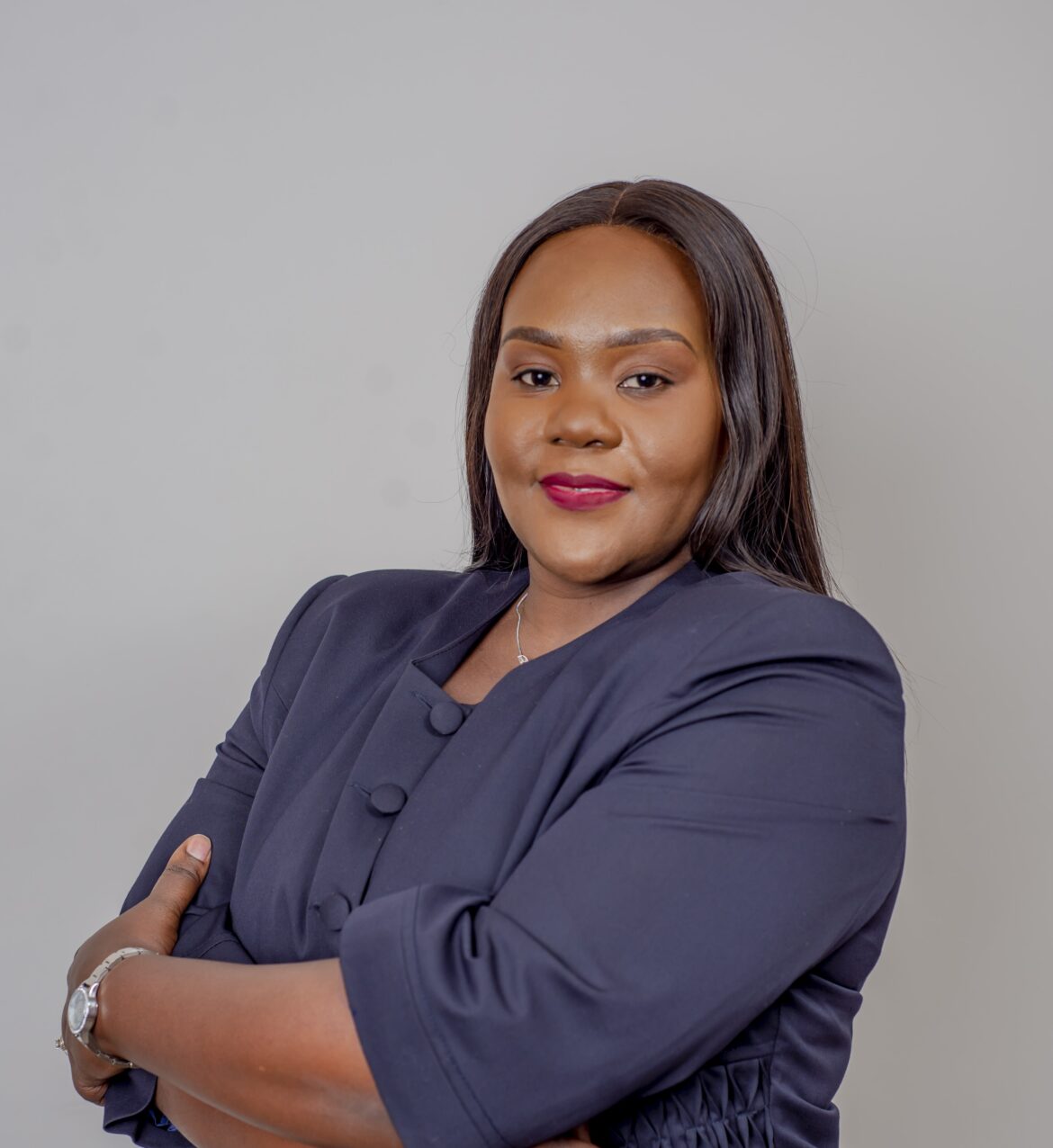Financial inclusion is vital for economic growth across Africa, where millions remain unbanked and lack access to essential financial services. In many regions, especially rural areas, traditional banking is limited, making it challenging for people to save, invest, or access credit. This lack of financial access mainly affects women, who comprise a significant portion of Africa’s informal workforce. As key contributors to their communities’ economic stability, African women are increasingly stepping into leadership roles, driving innovations that bring essential financial services to underserved populations. One such pioneering figure is Chilufya Mutale-Mwila, co-founder of eShandi.
Initially founded in 2019 in Lusaka as PremierCredit, eShandi has expanded to serve Kenya, South Africa, and Zimbabwe, reaching thousands who previously had limited or no access to credit. eShandi empowers women and small-to-medium enterprises (SMEs) by offering microloans and financial tools for underserved markets. Chilufya Mutale-Mwila emphasizes the transformative impact of accessible credit and digital finance through her fintech startup, enabling women to grow businesses, support families, and fully participate in their economies. Through eShandi, she continues to address financial inequality by promoting an inclusive, sustainable financial ecosystem tailored to the unique challenges of African markets.
In this exclusive interview with The Benchmark, Chilufya Mutale-Mwila recounts her journey to founding one of Southern Africa’s most profitable fintech companies.
The Benchmark: Can you please share a bit about your upbringing in Zambia and how your early experiences shaped your perspective on financial inclusion and entrepreneurship?
Chilufya Mutale-Mwila: I was born and raised in Zambia, where, like most of my fellow citizens, I witnessed and personally faced the daily struggles many individuals and families face in accessing essential financial services. Even at a young age, I remember feeling a distinct sense of unfairness at the fact that many hardworking people, especially women and small business owners, were excluded from the formal banking system because of factors out of their control: where they were from, the limited documentation they had access to or their lack of credit histories.
These early experiences made me realize a pressing need to close the financial solutions gap and empower people at every level of business and society. Since then, I have been motivated by a desire to enact this change and to create pathways to financial independence and stability. In time, this led to my professional journey into finance and the birth of eShandi.
How did your academic journey influence your venture into fintech? Were there specific experiences or studies that sparked your interest in empowering unbanked individuals and SMEs?
My early academic experiences were in fields unrelated to finance and technology, having initially pursued another passion of mine, the study of natural resources, at the University of Zambia. However, after gaining some firsthand experience in the financial services industry after university, I gained a postgraduate qualification from the Frankfurt School of Business in SME finance and risk management.
My first role in finance was at FINCA, a non-profit focused on microfinance that aims to fight poverty by giving communities access to the capital they need to build microbusinesses and other sustainable sources of income. This was an invaluable opportunity to interact with unbanked communities and see for myself how transformative financial technology can be.
This further fueled my interest in exploring how digital solutions can financially empower unbanked and underserved communities. Following this, I worked on several projects that analyzed the impact of financial inclusion on local economies, particularly SMEs. I concluded that fintech would need to play a vital role in African communities’ economic development and empowerment. My education and early professional life solidified my desire to leverage fintech to create practical, scalable solutions for these communities.
Before founding eShandi, what were some key roles or projects you worked on that prepared you for the challenges of starting a fintech company?
Founding your fintech start-up is inevitably unique, but I had several experiences that served me well beforehand. As everything from a branch manager to a chief operations officer to a CEO within the world of finance, I had experience in whole swathes of different banking operations and a well-rounded view of how strong companies should operate. I have expertise in credit assessment, customer engagement, and operational strategy, which are vital to my current position at eShandi.
My previous work allowed me to understand clearly the challenges low-income and unbanked individuals face, from navigating financial literacy gaps to accessing quick, reliable, and cheap credit options and how technology can solve these problems. These roles gave me the foundational knowledge and resilience to tackle the challenges of launching and scaling a fintech company in diverse African markets.

What motivated you to co-found eShandi, originally PremierCredit, and what specific gap did you aim to address in Zambia’s financial services landscape at the time?
The motivation behind founding eShandi stemmed from the gap in access to credit and financial services for Zambia’s unbanked population. We realized that many SMEs and individuals had limited access to traditional financial institutions, which stifled their growth potential and financial security. To solve this, we wanted to build a platform that provided not just loans but also a pathway to financial empowerment and self-reliance. eShandi was therefore launched with a mission to democratize financial access, providing digital lending and flexible financial solutions that cater to the needs of everyday Zambians and SMEs.
eShandi started as a microfinance institution and evolved into a fintech firm. Can you walk us through that transition, and why did you feel it was necessary to broaden your services?
While we founded eShandi to provide our clients with reliable access to credit, we quickly found that they needed more than just credit to achieve their financial goals. They required a broader suite of services that could support various aspects of their financial lives. We also concluded that by transitioning to a fully-fledged financial institution with technology at the heart of our operations, we could leverage digital transformation to amplify our impact, making services more accessible and affordable. Through technology, we could streamline operations, enhance customer experience, and offer a comprehensive financial ecosystem that addresses diverse financial needs.
What key challenges did you encounter while building eShandi, particularly in the early stages? How did you overcome these hurdles?
One of the key challenges we faced was raising the capital we needed to scale, especially after the COVID-19 pandemic hit. Funding opportunities dried up, not only in Africa but around the world. That said, we have consistently posted substantial revenues, having turned over more than $12 million last year, for example, which means we are less reliant on external funding than might otherwise be the case. Other challenges included building trust in the market, navigating regulatory frameworks, and educating users on digital finance. Building a robust tech infrastructure was another challenge. Still, we invested in secure, scalable platforms and leveraged local talent to ensure our solutions were reliable, user-friendly, and adaptable to our customers’ needs.
eShandi has expanded beyond Zambia into Kenya, South Africa, and Zimbabwe. What factors drove this expansion, and what strategies have been crucial in entering these new markets?
Since the start, our mission has been to empower communities with access to the formal financial services they need to grow and achieve their financial goals. That mission is not limited to Zambia. Our recent expansions into Kenya, South Africa, and Zimbabwe were fueled by our commitment to providing accessible finance in other underserved regions. In time, we aim to take this mission to other communities in Africa, too.

How has eShandi’s presence impacted financial inclusion across your regions, particularly for women and small businesses? Can you share any success stories?
-eShandi has significantly improved financial inclusion across our operating regions, particularly benefiting women entrepreneurs and small businesses. For example, in Zambia, we worked with a group of women who operate local food businesses. Thanks to eShandi providing access to quick, cheap, and reliable loans, they could purchase inventory, expand their stalls, and even employ more people. This was a very satisfying experience as it demonstrated the practical difference we can make to people’s lives and the prosperity of local communities in Africa, which traditional financial institutions have left behind. We have provided over $7 million in funding to SMEs, many of whom were founded and run by women and youth.
What unique challenges does the sub-Saharan African market present for fintechs, and how is eShandi adapting to these realities to ensure its growth and sustainability?
Sub-Saharan Africa presents unique challenges, including varying regulatory landscapes, limited digital infrastructure, and the need to boost financial literacy. eShandi has adapted by investing in mobile-first solutions to reach areas with limited banking facilities, ensuring compliance with local regulations, and providing financial literacy programs to empower our users. We also prioritize partnerships with local institutions and technology providers to strengthen our presence and adapt to the evolving needs of the markets we serve. These strategies have been vital to overcoming the obstacles posed by this challenging but fast-growing market and achieving the rapid growth we have experienced since our launch.
Looking ahead, what are your goals for eShandi in the next five years, and how do you see the company contributing to the broader goal of economic empowerment in Africa?
In the next five years, we aim to deepen our presence in existing markets, expand into new ones, and enhance our product offerings to address diverse financial needs. We strive to increase our outreach to SMEs, underserved communities, and women entrepreneurs, furthering African economic empowerment. We hope to foster a more inclusive financial landscape that supports sustainable growth and economic resilience for all, thereby playing a role in unleashing a new generation of solid and sustainable economic development in Africa.



